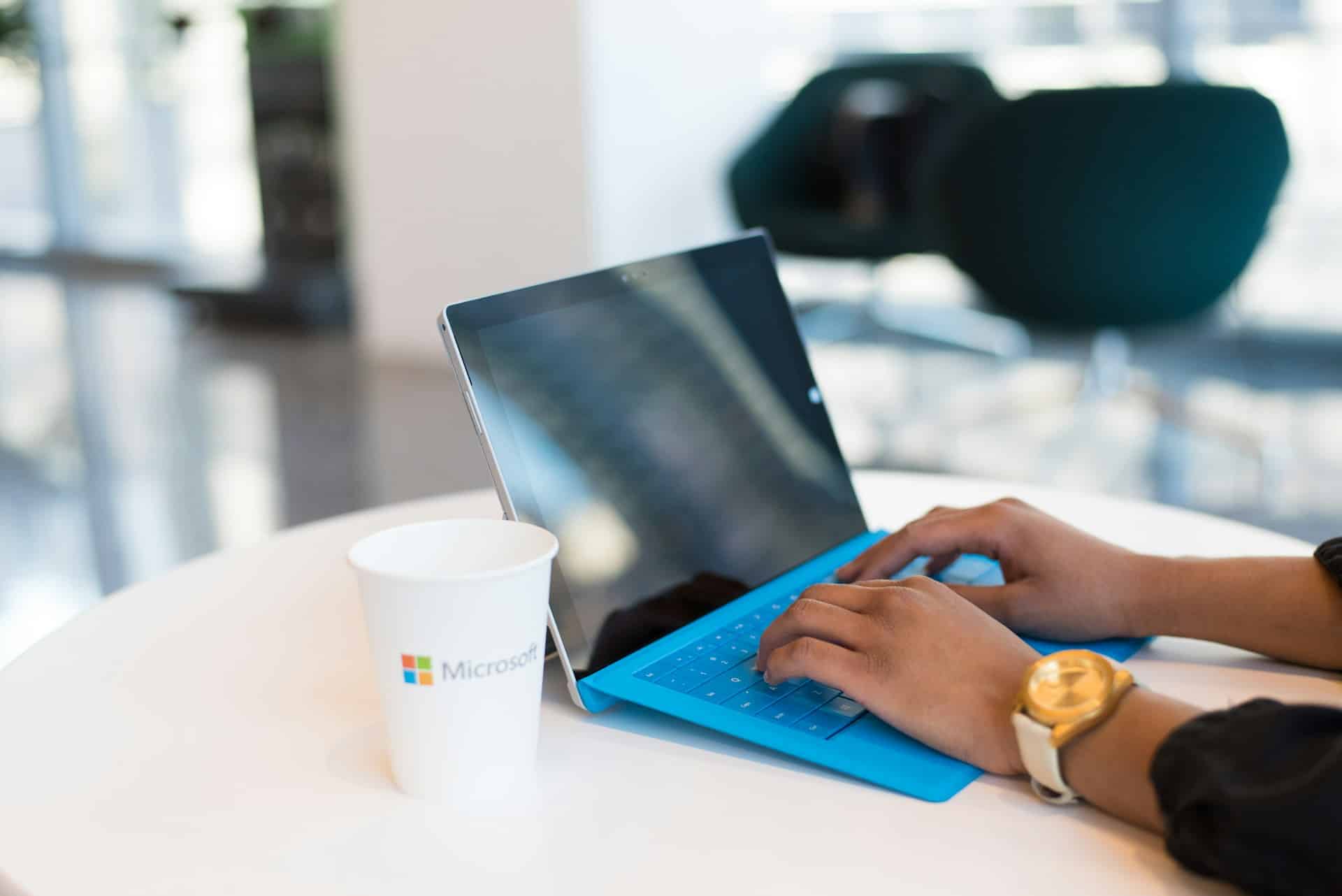Can you imagine your computer anticipating your needs before even clicking a button? That’s not a scene from a sci-fi movie; it’s what Microsoft is weaving into the fabric of their latest Surface PCs.
Last Thursday, at their eagerly anticipated Surface event, Microsoft unveiled a suite of AI-powered features designed to redefine our interaction with personal computers. These innovations are poised to transform everyday tasks into more engaging and intuitive experiences.
Imagine your laptop suggesting the fastest way to organize your day or optimizing your workspace based on your personal productivity patterns. This is just the beginning of a new era where technology becomes a proactive partner in our daily lives, adapting dynamically to our individual needs and the changing world around us.
IMAGE: UNSPLASH
A Glimpse into the Future
At the heart of the event were the new AI capabilities integrated into the Surface lineup. These features aren’t just about enhancing processing power or improving graphics—they’re about creating a more intuitive and responsive user experience.
For example, the new Surface Pro models come equipped with AI-driven contextual awareness. This means your device will adjust its settings based on your current task and environment—dimming the screen as evening falls or suggesting relevant documents as you prepare for a meeting.
This heightened sensitivity to context extends beyond simple environmental adjustments. The new AI enhancements also facilitate better communication, with features like real-time language translation and speech-to-text capabilities that understand not just words, but nuances of tone and intent.
Such advancements are not merely improvements; they are transformative, making technology an extension of human interaction and cognition, bridging the gap between user intention and device execution in ways previously thought futuristic.
What Sets Microsoft Apart?
But here’s the interesting part: Microsoft isn’t the first to experiment with AI in tech devices. So, what sets them apart? It’s their approach to seamless integration. While other tech giants have bolted AI onto existing platforms, Microsoft has woven it deeply into the operating system itself.
This integration ensures that AI enhancements improve core functionalities, like security and accessibility, making these features feel like natural extensions of the user interface rather than afterthoughts.
This deep integration allows Microsoft to leverage AI in more subtle ways that improve the user experience without being overt or cumbersome. For instance, their AI algorithms can predict a user’s needs based on their activity patterns, providing suggestions and actions that feel surprisingly personal and timely.
Additionally, Microsoft’s commitment to ethical AI use and transparency in handling user data provides a layer of trust and security that is crucial for widespread adoption. They have implemented stringent privacy controls and open communication about data usage, setting a standard for responsible AI that not only enhances functionality but also respects user privacy.
By prioritizing these elements, Microsoft not only advances the technology but also crafts a narrative of trust and reliability around its products, further distinguishing itself in a market where the convergence of technology and ethics increasingly captures consumer interest.
Real-World Impact
Let’s take a step back and consider what this means for everyday users. Imagine you’re planning a trip. Your AI-powered Surface might automatically pull up your itinerary, suggest activities based on your interests, and even remind you to check in for your flight.
It’s like having a personal assistant who knows exactly when and how to offer help without being intrusive. Beyond travel, this technology could transform educational settings, adapting learning materials to student needs in real time, or streamlining small business operations by automating routine tasks and providing insightful analytics.
The ripple effects are broad, touching everything from how we manage our personal lives to how industries operate, making technology not just a tool, but a cornerstone of efficiency and innovation.
Comparing the Giants
Curious how Microsoft’s AI stacks up against the competition? Apple and Google have certainly paved the way with AI in their devices, focusing largely on voice commands and automation. However, Microsoft’s AI initiatives seem to prioritize contextual and behavioral understanding, aiming to create a more holistic and anticipatory user experience.
This could mean a significant edge for Microsoft as PCs become not just tools, but active participants in our digital lives. Moreover, when comparing ecosystems, Microsoft’s approach allows for greater integration across multiple platforms, including Office 365 and Windows. This not only enhances productivity but also streamlines the user experience, providing a coherent, connected environment.
Additionally, Microsoft’s AI-driven analytics and cloud services offer robust support for enterprise users, making it a go-to choice for businesses looking to leverage AI for growth and efficiency. This holistic integration sets Microsoft apart in a crowded field, positioning it as a leader in both innovation and practical, cross-platform AI solutions.
What Does This Mean for Us?
So, what does this leap in AI technology mean for the future of personal computing? For one, it suggests a shift towards more personalized and adaptive technology. Devices that can anticipate our needs and adjust to our habits could make technology feel even more indispensable and, dare I say, empathetic. As this technology evolves, it could also revolutionize how we interact with all digital interfaces, from smartphones to smart homes.
The intelligence embedded in our PCs could serve as a model for other devices, creating a unified, intelligent ecosystem that extends beyond individual gadgets. This transformation could lead to smarter living environments where technology proactively supports our daily activities, enhancing our efficiency and overall quality of life.
A New Era of Computing
But here’s something to ponder: As these technologies develop, they could also transform the broader tech landscape. Imagine AI capabilities influencing everything from software development to how we interact with other smart devices in our homes.
The possibilities are as vast as they are thrilling. This isn’t just about upgrading what machines can do; it’s about rethinking what it means to interact with technology. Future AI innovations could lead to even more sophisticated algorithms that not only respond to our commands but also anticipate our problems and offer solutions before we even identify them.
This proactive capability could drastically reduce our cognitive load, allowing us to focus on creativity and decision-making. Moreover, with AI’s growing influence, we could see a new breed of smart applications that seamlessly integrate with our daily lives, making the digital world an even more integral part of our human experience.
Your Thoughts?
How do you feel about letting an AI anticipate your needs? Could it change the way you work or play? I’d love to hear your thoughts or experiences with AI in your daily life. Your Thoughts?
Wrapping It Up
As we circle back to our opening thoughts, it’s clear that Microsoft’s new Surface event isn’t just another tech announcement—it’s a peek into the future of personal computing. A future where our devices not only understand our commands but also our context and needs.
Whether this excites or unsettles you, it’s a development that promises to make our interactions with technology more intuitive and, ultimately, more human. What are your thoughts on this evolution? Are you ready for your PC to know you better than you know yourself?
IMAGE: UNSPLASH
If you are interested in even more technology-related articles and information from us here at Notilizer, then we have a lot to choose from.


COMMENTS